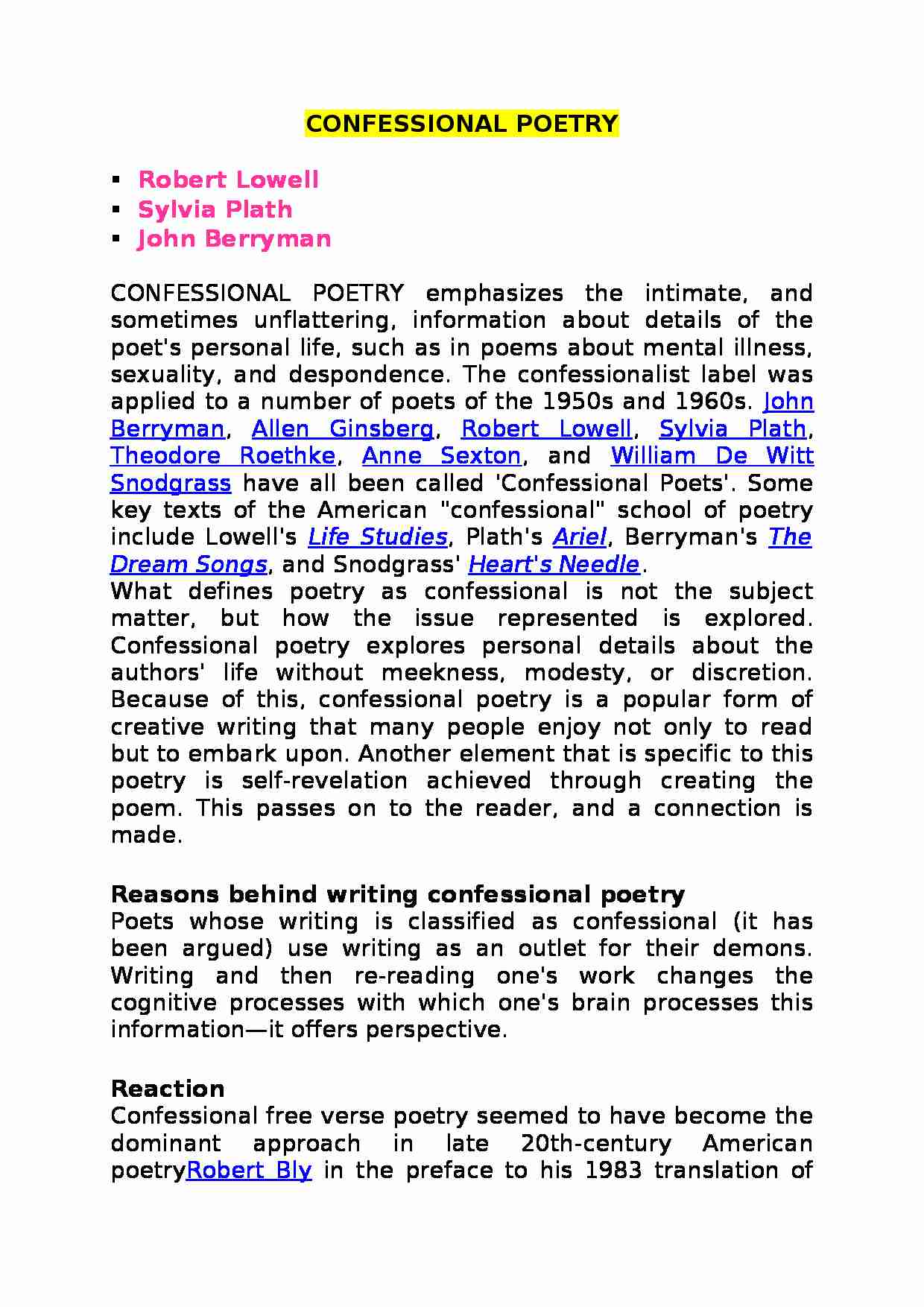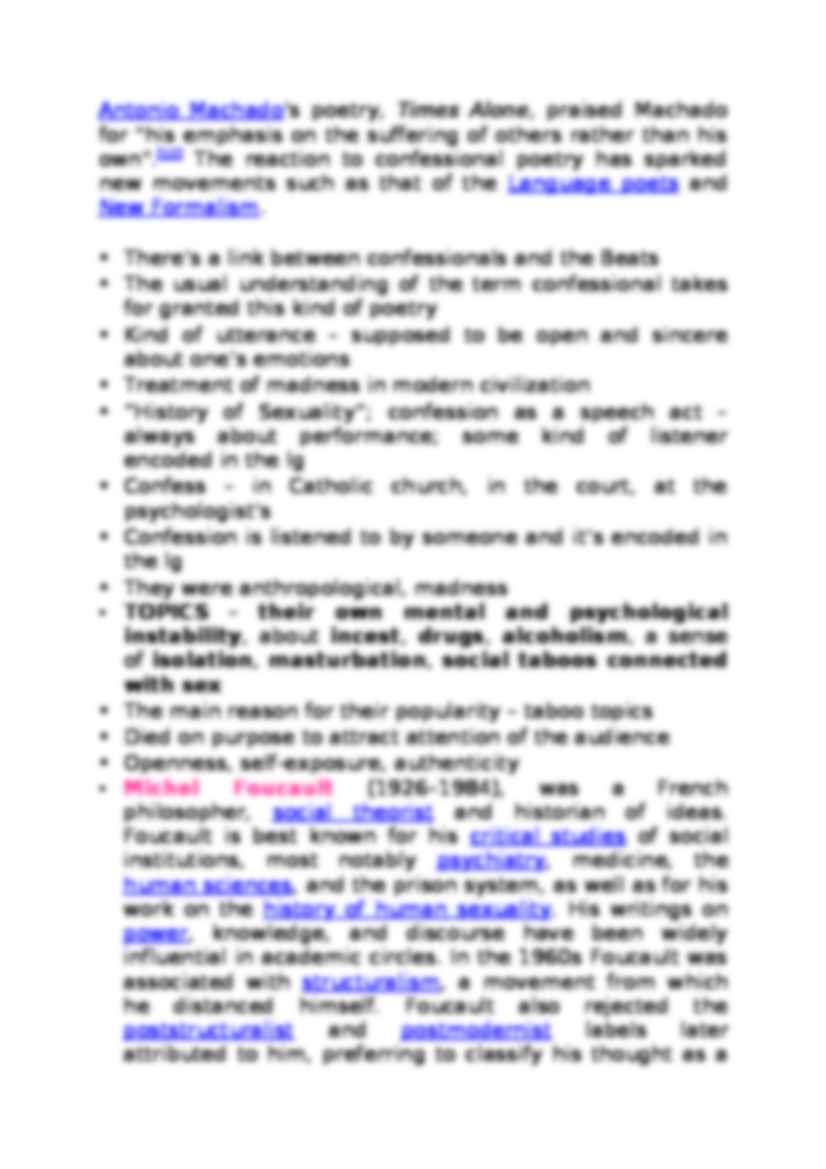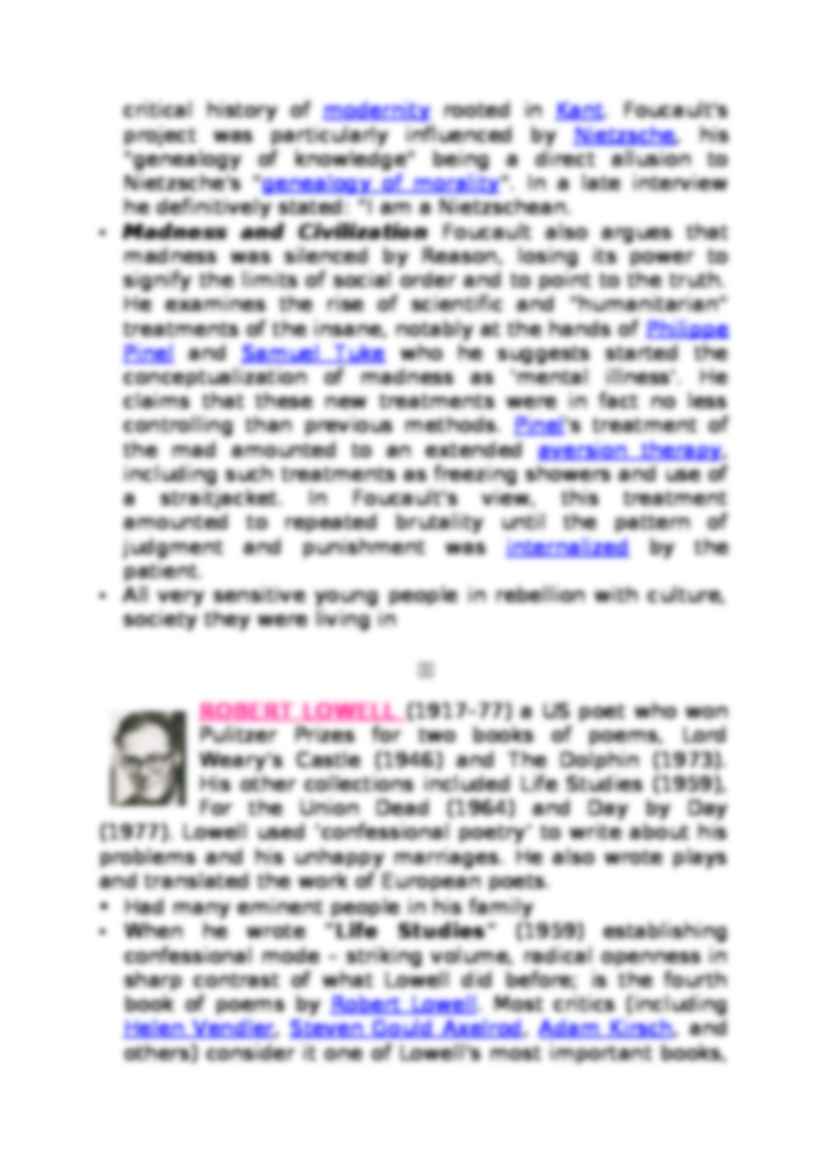Confessional poetry
Robert Lowell
Sylvia Plath
John Berryman
Confessional poetry emphasizes the intimate, and sometimes unflattering, information about details of the poet's personal life, such as in poems about mental illness, sexuality, and despondence. The confessionalist label was applied to a number of poets of the 1950s and 1960s. John Berryman, Allen Ginsberg, Robert Lowell, Sylvia Plath, Theodore Roethke, Anne Sexton, and William De Witt Snodgrass have all been called 'Confessional Poets'. Some key texts of the American "confessional" school of poetry include Lowell's Life Studies, Plath's Ariel, Berryman's The Dream Songs, and Snodgrass' Heart's Needle.
What defines poetry as confessional is not the subject matter, but how the issue represented is explored. Confessional poetry explores personal details about the authors' life without meekness, modesty, or discretion. Because of this, confessional poetry is a popular form of creative writing that many people enjoy not only to read but to embark upon. Another element that is specific to this poetry is self-revelation achieved through creating the poem. This passes on to the reader, and a connection is made.
Reasons behind writing confessional poetry
Poets whose writing is classified as confessional (it has been argued) use writing as an outlet for their demons. Writing and then re-reading one's work changes the cognitive processes with which one's brain processes this information—it offers perspective. Reaction
Confessional free verse poetry seemed to have become the dominant approach in late 20th-century American poetryRobert Bly in the preface to his 1983 translation of Antonio Machado's poetry, Times Alone, praised Machado for "his emphasis on the suffering of others rather than his own".[10] The reaction to confessional poetry has sparked new movements such as that of the Language poets and New Formalism.
There's a link between confessionals and the Beats
The usual understanding of the term confessional takes for granted this kind of poetry
Kind of utterance - supposed to be open and sincere about one's emotions
Treatment of madness in modern civilization
“History of Sexuality”; confession as a speech act - always about performance; some kind of listener encoded in the lg
Confess - in Catholic church, in the court, at the psychologist's
Confession is listened to by someone and it's encoded in the lg
They were anthropological, madness
Topics - their own mental and psychological instability, about incest, drugs, alcoholism, a sense of isolation, masturbation, social taboos connected with sex
The main reason for their popularity - taboo topics
(…)
… 385 individual poems.
A long piece of poems, elegy on the death of his father - trauma, father killed himself when John was 10 years old; jumped off the bridge
The minstrel show, or minstrelsy, was an American entertainment consisting of comic skits, variety acts, dancing, and music, performed by white people in blackface or, especially after the Civil War, black people in blackface. Minstrel shows…
… treatments were in fact no less controlling than previous methods. Pinel's treatment of the mad amounted to an extended aversion therapy, including such treatments as freezing showers and use of a straitjacket. In Foucault's view, this treatment amounted to repeated brutality until the pattern of judgment and punishment was internalized by the patient.
All very sensitive young people in rebellion with…
... zobacz całą notatkę






Komentarze użytkowników (0)